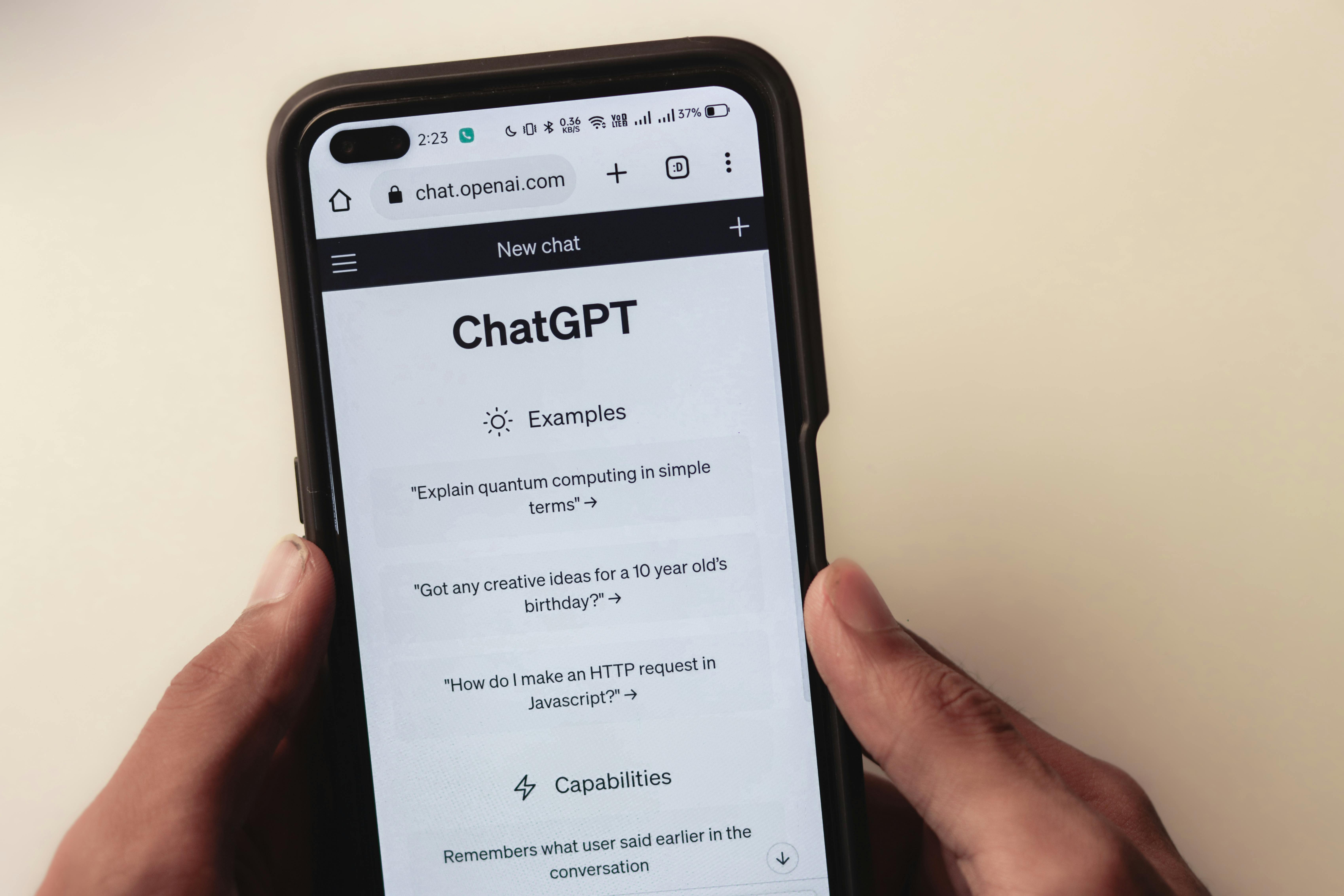AI Tools to Improve Search Rankings: Your Guide to SEO Success

asdsad
dasd
AI Tools to Improve Search Rankings: Your Guide to SEO Success
In the ever-evolving digital landscape, Search Engine Optimization (SEO) remains a cornerstone of online visibility and success. Businesses and content creators constantly strive to climb the search engine results pages (SERPs) to attract organic traffic. Recently, Artificial Intelligence (AI) has emerged as a transformative force, offering powerful tools and capabilities to enhance SEO strategies and achieve better rankings. Understanding and leveraging these AI tools is no longer a luxury but a necessity for staying competitive.
This guide will delve into the world of AI-powered SEO, exploring the types of tools available, key strategies for their implementation, and the profound impact they can have on your search rankings. Whether you're an experienced SEO professional or just starting, integrating AI into your workflow can unlock new levels of efficiency and effectiveness, helping you navigate the complexities of modern search algorithms.
The Evolving Landscape of SEO: Why AI is a Game-Changer
Traditional SEO practices, while still valuable, often involve time-consuming manual tasks, extensive data analysis, and a degree of guesswork. Keyword research, content creation, technical audits, and link building require significant human effort. As search engines like Google become increasingly sophisticated, relying on complex algorithms that prioritize user intent and experience, the challenge of optimizing for them grows.
AI steps in to address these challenges by offering unprecedented speed, scale, and analytical depth. AI algorithms can process vast amounts of data in seconds, identify patterns invisible to the human eye, and automate repetitive tasks, freeing up SEO professionals to focus on higher-level strategy and creativity. Furthermore, AI excels at understanding natural language and user intent, aligning perfectly with the shift towards semantic search. This capability allows for more precise content optimization and a better understanding of what users are truly looking for.
The integration of AI into SEO is not just about automation; it's about augmentation. AI tools provide insights and capabilities that enhance human expertise, leading to more informed decisions and more effective optimization efforts. This synergy is crucial for navigating the dynamic nature of search engine algorithms and user behavior.
Understanding Different Types of AI SEO Tools
The market for AI SEO tools is expanding rapidly, with solutions catering to various aspects of the optimization process. Understanding these categories can help you identify which tools will provide the most significant benefit to your specific needs. These tools generally fall into several key areas, each designed to tackle distinct SEO challenges.
Content Creation and Optimization Tools
Content remains king in SEO, and AI offers powerful assistance in both its creation and refinement. AI writing assistants, such as Jasper, Copy.ai, and Rytr, can help generate outlines, draft initial content, brainstorm ideas, and even rewrite existing text. While they shouldn't replace human creativity entirely, they can significantly speed up the content production pipeline. It's crucial to use these tools as a starting point, ensuring human oversight for accuracy, tone, and originality.
Beyond generation, AI-powered content optimization platforms like Surfer SEO, Clearscope, and MarketMuse are invaluable. These tools analyze top-ranking content for target keywords, providing data-driven recommendations on content length, keyword usage, readability, and topics to cover. They help ensure your content is comprehensive, relevant, and aligned with what search engines and users deem valuable. Instructions for using these tools often involve inputting a target keyword, after which the AI provides a detailed brief or an interactive editor to guide your writing process.
Keyword Research and Analysis Tools
Effective keyword research is fundamental to SEO. AI enhances this process by uncovering deeper insights and identifying opportunities that manual research might miss. Tools like Semrush's Keyword Magic Tool or Ahrefs' Keywords Explorer are increasingly incorporating AI to provide more relevant keyword suggestions, analyze keyword difficulty more accurately, and understand search intent at a granular level.
AI also facilitates advanced techniques like topic clustering. By analyzing semantic relationships between keywords, AI can help group related terms into clusters, enabling you to create comprehensive pillar pages and topic-specific content that covers a subject in depth. This approach signals expertise to search engines and improves user experience. AI-driven content gap analysis tools compare your content against competitors, highlighting keywords and topics you're missing, providing a clear roadmap for content expansion.
Technical SEO Audit Tools
Technical SEO ensures your website is crawlable, indexable, and provides a good user experience – all critical ranking factors. AI-powered technical SEO tools can automate and enhance the auditing process. Tools like Screaming Frog SEO Spider, Sitebulb, and various enterprise-level platforms are integrating AI to identify complex technical issues more efficiently. This includes detecting crawl errors, broken links, duplicate content, issues with site speed, mobile-friendliness, and problems with schema markup implementation.
AI can also play a significant role in log file analysis. By examining server log files, AI can provide insights into how search engine crawlers interact with your website, identifying crawl budget inefficiencies or pages that are rarely visited by bots. This information is vital for optimizing your site’s technical health and ensuring important content is discovered and indexed promptly.
Link Building and Outreach Tools
Backlinks remain a crucial ranking signal, but acquiring high-quality links is challenging. AI can streamline aspects of the link-building process. Some tools leverage AI for prospect identification, helping find relevant websites and influencers for outreach based on content, authority, and audience overlap. AI can also assist in personalizing outreach emails, increasing the likelihood of a positive response, though careful human review is essential to maintain authenticity.
Furthermore, AI can be used to monitor your backlink profile, identifying potentially harmful links that could lead to penalties or assessing the quality of newly acquired links. While AI can automate parts of the discovery and initial contact, the relationship-building aspect of link acquisition still heavily relies on human interaction and strategic thinking.
Rank Tracking and Performance Monitoring Tools
Monitoring your website's performance in SERPs is essential to gauge the effectiveness of your SEO efforts. AI-enhanced rank tracking tools provide more than just position updates. They can offer AI-driven insights into ranking fluctuations, analyze competitor movements with greater accuracy, and even provide predictive analytics regarding potential SEO performance based on current trends and data.
These tools can help identify the impact of algorithm updates more quickly and provide context for changes in rankings. By learning from historical data and market trends, AI can offer more sophisticated reporting and forecasting, enabling SEOs to be more proactive rather than reactive in their strategies.
Key Strategies for Leveraging AI in Your SEO Efforts
Simply acquiring AI SEO tools is not enough; a strategic approach is necessary to maximize their benefits. Integrating AI effectively into your existing SEO workflows requires careful planning and a clear understanding of how these technologies can support your overarching goals. Here are key strategies to consider:
- Automate Repetitive Tasks: Identify time-consuming, manual SEO tasks that AI can handle efficiently. This could include initial keyword research, generating meta descriptions at scale (with human review), basic competitor monitoring, or initial technical site crawls. Freeing up human resources from these tasks allows your team to focus on complex problem-solving, strategic planning, and creative content development. For instance, set up automated alerts for significant ranking drops or new toxic backlinks.
- Enhance Content Quality and Relevance: Use AI to gain a deeper understanding of user intent and search engine expectations. Employ AI content optimization tools to analyze top-ranking pages and refine your content for comprehensiveness, semantic richness, and optimal keyword usage. This ensures your content not only targets keywords but also thoroughly answers user queries, leading to higher engagement and better rankings. Regularly audit existing content with AI tools to identify areas for improvement and updates.
- Improve Technical SEO Efficiency: Leverage AI-powered auditing tools to quickly identify and diagnose complex technical issues that might hinder your site’s performance. This includes finding crawl errors, improving site speed, ensuring mobile-friendliness, and correcting schema markup inconsistencies. Set up regular AI-driven technical crawls to proactively catch and fix issues before they impact your rankings significantly.
- Personalize User Experience (Indirect SEO Boost): While not always direct SEO tools, AI-driven personalization platforms can enhance user experience on your website. By tailoring content, product recommendations, or navigation to individual user preferences, you can increase engagement, reduce bounce rates, and improve conversion rates. These positive user signals can indirectly benefit your SEO performance.
- Gain Deeper Competitive Insights: Utilize AI to analyze competitor strategies at a scale and depth that would be impossible manually. AI tools can track competitor content, backlink profiles, keyword rankings, and even on-page changes. This allows you to identify their strengths and weaknesses, uncover new opportunities, and stay ahead of the curve by adapting your strategies based on data-driven competitive intelligence.
- Optimize for Voice Search and Conversational AI: As voice search continues to grow, optimizing for natural language queries is crucial. AI tools can help you understand the conversational phrases and long-tail keywords users employ in voice searches. Use these insights to create FAQ sections, structure content in a question-and-answer format, and optimize for featured snippets, which are often sources for voice search answers.
Practical Steps to Integrate AI SEO Tools into Your Workflow
Successfully integrating AI into your SEO practices involves more than just subscribing to a few tools. It requires a methodical approach to ensure these technologies genuinely enhance your efforts and deliver a return on investment. Follow these practical steps for a smoother transition:
First, start with a clear understanding of your SEO goals. What are you trying to achieve? Is it higher rankings for specific keywords, increased organic traffic, better user engagement, or improved technical site health? Defining your objectives will help you identify which AI tools align best with your needs.
Next, identify your biggest pain points. Where are the bottlenecks in your current SEO workflow? Are you struggling with content creation speed, in-depth keyword analysis, or timely technical audits? Pinpointing these areas will highlight where AI can provide the most immediate value and impact.
Then, research and select appropriate tools. The AI SEO tool market is diverse. Consider factors like features, ease of use, integration capabilities with your existing MarTech stack, customer support, and, of course, budget. Many tools offer free trials or demos, which are excellent opportunities to test their suitability before committing.
It's wise to start small and scale gradually. Don't try to implement multiple complex AI tools simultaneously. Begin with one or two tools that address your most pressing needs. Allow your team time to learn how to use them effectively and integrate them into their daily routines. Once you see positive results and gain confidence, you can explore additional AI solutions.
Crucially, train your team. Ensure everyone who will be using the AI tools receives adequate training. This includes understanding the tool's capabilities, its limitations, and how to interpret the data and recommendations it provides. Fostering a culture of continuous learning is important, as AI tools and features are constantly evolving.
Finally, continuously monitor, evaluate, and adapt. SEO and AI are both dynamic fields. Regularly assess the performance of your AI tools and their impact on your SEO metrics. Are they delivering the expected results? Are there new tools or features that could be more beneficial? Be prepared to adjust your strategies and toolset as the landscape changes and your understanding of AI's potential grows.
The Human Element: Why AI Won't Replace SEO Professionals (Yet)
Despite the remarkable advancements in AI and its growing capabilities in SEO, the notion that AI will completely replace human SEO professionals is, at least for the foreseeable future, unfounded. AI tools are powerful assistants and enablers, but they lack the nuanced understanding, strategic foresight, and creativity that human experts bring to the table.
Human strategy is paramount. AI can provide data and identify patterns, but it's the SEO professional who interprets this information within the broader context of business goals, brand identity, and market dynamics. Developing a cohesive SEO strategy that aligns with overall marketing objectives requires critical thinking and experience that AI currently cannot replicate. Moreover, creativity in content ideation, crafting compelling narratives, and developing innovative link-building campaigns remains a distinctly human strength.
Ethical considerations and brand voice are also critical areas where human oversight is indispensable. AI-generated content, for example, might lack the authentic voice or subtle nuances that resonate with a specific audience. Ensuring content is accurate, original, and aligns with brand values requires human judgment. Furthermore, understanding complex user journeys and the emotional drivers behind search behavior often requires empathy and intuition that AI lacks. AI tools can also make mistakes or provide misleading recommendations; human SEOs are needed to validate outputs and make informed decisions.
Future Trends: What's Next for AI in SEO?
The intersection of AI and SEO is a rapidly evolving space, and we can anticipate even more sophisticated applications in the coming years. One significant trend is the greater integration of AI into search engine algorithms themselves. As search engines like Google continue to refine their AI capabilities (e.g., MUM, RankBrain), SEO strategies will need to become even more attuned to understanding and satisfying complex user intent, which AI tools will be pivotal in helping to decipher.
We can also expect more sophisticated predictive analytics for SEO outcomes. AI will likely become better at forecasting the potential impact of specific SEO actions, helping professionals prioritize efforts and allocate resources more effectively. Imagine AI tools that can predict ranking changes based on planned content updates or technical fixes with a higher degree of accuracy.
Hyper-personalization of search results driven by AI is another area to watch. While search results are already personalized to some extent, AI could enable even more granular tailoring based on individual user history, preferences, and context. This will present new challenges and opportunities for SEOs to understand and target increasingly specific audience segments.
The quality and capabilities of AI-generated content will continue to improve, potentially becoming more indistinguishable from human-written content. This raises both opportunities for content scaling and significant challenges related to content authenticity, originality, and the potential for misuse. Search engines will likely develop more sophisticated ways to detect and evaluate AI-generated content.
Finally, the role of AI in visual and voice search optimization will expand. As users increasingly interact with search through images and voice commands, AI tools will become more crucial for optimizing these non-textual content formats and understanding the nuances of conversational queries.
Embracing AI for a Smarter SEO Future
The integration of Artificial Intelligence into Search Engine Optimization is undeniably reshaping how we approach online visibility. AI tools offer powerful capabilities to automate tasks, uncover deep insights, enhance content relevance, and streamline technical audits, ultimately contributing to improved search rankings and more efficient workflows. From content creation to technical analysis and competitive intelligence, AI is providing SEO professionals with an unprecedented level of support.
However, the true power of AI in SEO is realized when it's wielded strategically by knowledgeable humans. These tools are not magic wands but sophisticated instruments that, in the right hands, can amplify expertise and drive remarkable results. The future of SEO is not about AI versus humans, but rather AI augmenting human intelligence. By understanding the different types of AI tools available, implementing them thoughtfully, and continuously adapting to the evolving technological landscape, businesses and SEO practitioners can harness the power of AI to achieve and maintain a competitive edge in the search results.
As search engines become more intelligent, so too must our strategies. Embracing AI tools is a crucial step towards a smarter, more data-driven, and ultimately more successful SEO future. The journey involves continuous learning and adaptation, but the rewards—enhanced efficiency, deeper insights, and superior search performance—are well worth the effort.Discover how AI tools are revolutionizing SEO. Learn about different types of AI SEO software and strategies to improve your search rankings effectively.

